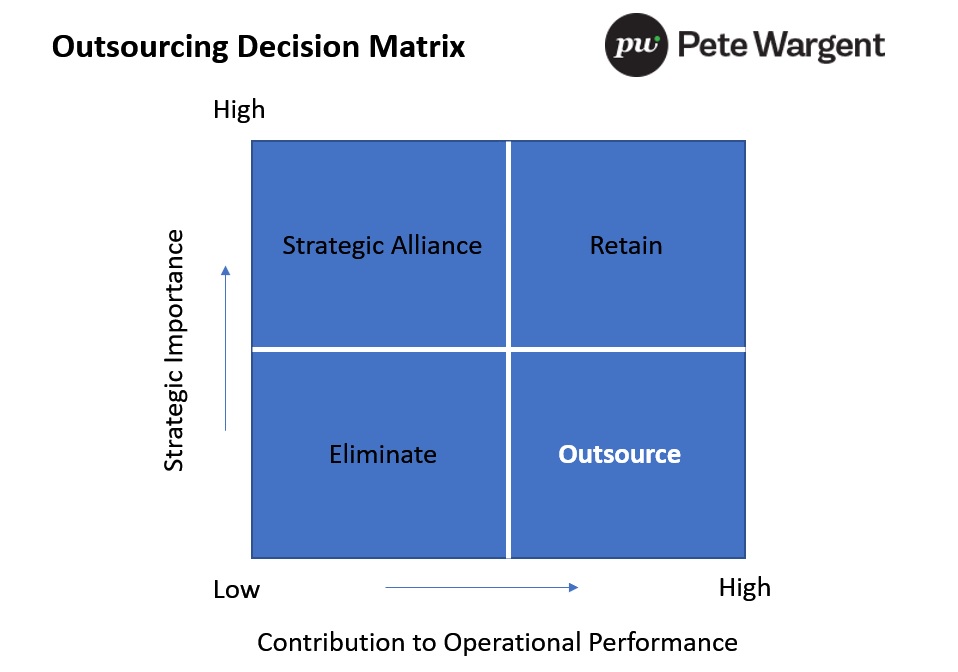At your own risk
An entrepreneur is a decision-maker comfortable with taking risks, and prepared to invest in & embrace activities without sure outcomes.
Most people don’t think this way.
It’s often a challenging concept for academic high achievers, for example, to assume the risks & rewards of projects that might not work, with failure in the education system commonly seen to be a bad thing.
While entrepreneurial flair & skills don’t come naturally to most, arguably entrepreneurship will be more important in the future as the workforce becomes more casualised and defined benefit pension schemes become a relic of generations past.
To the core
Movers & shakers in business put a high value on their own time, affording them space to focus on their core activities, competencies, or business processes.
One key way to enact this is through outsourcing, which can help entrepreneurs to be flexible and control both capital & labour costs.
Engaging experts or specialists to level the playing field may see repetitive or non-core activities completed efficiently, incorporating anything from payroll to scheduling & administration, or from printing business documents to cleaning.
By way of one personal example, I’m a Chartered Accountant but I’ll always outsource accounting & tax work in any business I start – although it’s a key operational process, it’s not normally of strategic importance & it’s definitely not my core business activity.
Here’s how to decide what should be outsourced (Barnes, 2008):

Master your strengths; outsource your weaknesses
Outsourcing is not appropriate in every instance, for it can involve a loss of control or quality, while shifting reliance onto the capabilities or fortunes of another business or individual. Here are 4 considerations to help you decide:
(i) Your primary service offering – what is your primary service offering or value proposition? Will outsourcing help you to focus more on that?;
(ii) Your competitive advantage – what is it that you do better than anyone else, that really adds value to the lives of others? Tasks outside this should ideally be delegated or outsourced;
(iii) Efficiency – does someone else have the skills to perform a specialised service more effectively or efficiently than you, such as, say, designing a new business logo or website?’; and
(iv) Time/cost analysis – ultimately it’s a numbers game, so you need to weigh up the value of your own time and the opportunity cost of you spending that time on non-core activities.
Outsource for all you’re worth…
It’s not always solely about dollar values, of course. Occasionally I wash my own car, because it gets me out of the house into the sunshine & it delivers a sense of satisfaction (at least, it does when I’ve finished).
That said, yesterday I paid $50 for a Pro-Shield carwash & wax and an internal valet, as I’ve been busily writing a book & a new online course.
Think about this for a moment: if you do a job yourself but someone can do it better for $50-$100/hour, what value are you placing on your own time?
That’s not a trick question!
Do what you do best; outsource the rest.






